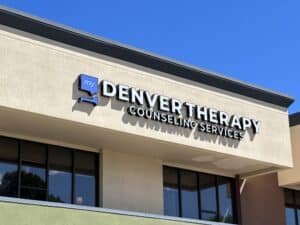Eating disorders are complex mental health conditions that can have a devastating impact on individuals and their loved ones. While the journey to recovery can be challenging, therapy has proven to be a highly effective tool in helping individuals overcome these struggles. At My Denver Therapy, we understand the importance of seeking professional help and are committed to providing compassionate and evidence-based care.
Understanding Eating Disorders
Eating disorders are characterized by abnormal eating behaviors and distorted body image. Some of the most common types of eating disorders include:
- Anorexia Nervosa: This disorder involves an intense fear of gaining weight, leading to restrictive eating behaviors and often resulting in dangerously low body weight.
- Bulimia Nervosa: Individuals with bulimia nervosa engage in cycles of binge eating followed by purging behaviors, such as vomiting, excessive exercise, or laxative abuse.
- Binge Eating Disorder: This disorder involves recurrent episodes of binge eating without compensatory behaviors like purging.

The Power of Therapy in Eating Disorder Recovery
Therapy provides a safe and supportive space for individuals to explore the underlying causes of their eating disorder and develop healthy coping mechanisms. By working with a qualified therapist, individuals can gain valuable insights into their thoughts, feelings, and behaviors, and learn how to challenge negative self-talk and distorted beliefs.
Evidence-Based Therapies for Eating Disorders
Several evidence-based therapies have been shown to be effective in treating eating disorders. Some of the most common approaches include:
- Cognitive-Behavioral Therapy (CBT): CBT helps individuals identify and challenge negative thoughts and behaviors that contribute to their eating disorder.
- Family-Based Therapy (FBT): FBT is a family-centered approach that empowers families to support their loved one’s recovery.
- Dialectical Behavior Therapy (DBT): DBT focuses on mindfulness, emotional regulation, distress tolerance, and interpersonal effectiveness skills.
Why Therapy is Effective
Therapy is effective for a variety of reasons, including:
- Professional Guidance: Therapists are trained to provide expert guidance and support throughout the recovery process.
- Personalized Treatment Plans: Therapists can tailor treatment plans to meet the unique needs and goals of each individual.
- Skill Development: Therapy helps individuals develop essential skills for managing stress, coping with emotions, and building healthy relationships.
- Increased Self-Awareness: Through therapy, individuals can gain a deeper understanding of themselves and their patterns of behavior.
- Improved Quality of Life: Recovery from an eating disorder can significantly improve an individual’s overall quality of life.
Statistics Show: Therapy Works
Numerous studies have demonstrated the effectiveness of therapy in treating eating disorders. For example, a study published in the American Journal of Psychiatry found that individuals who received cognitive-behavioral therapy for anorexia nervosa were more likely to achieve full recovery than those who received standard care.
Another study, published in the International Journal of Eating Disorders, found that family-based therapy was effective in treating adolescents with anorexia nervosa.
Taking the First Step
If you or someone you know is struggling with an eating disorder, please know that help is available. At My Denver Therapy, our compassionate and experienced therapists are here to support you on your journey to recovery. Contact us today to schedule a consultation.
Remember, you are not alone. With the right support, you can overcome an eating disorder and live a fulfilling life.







